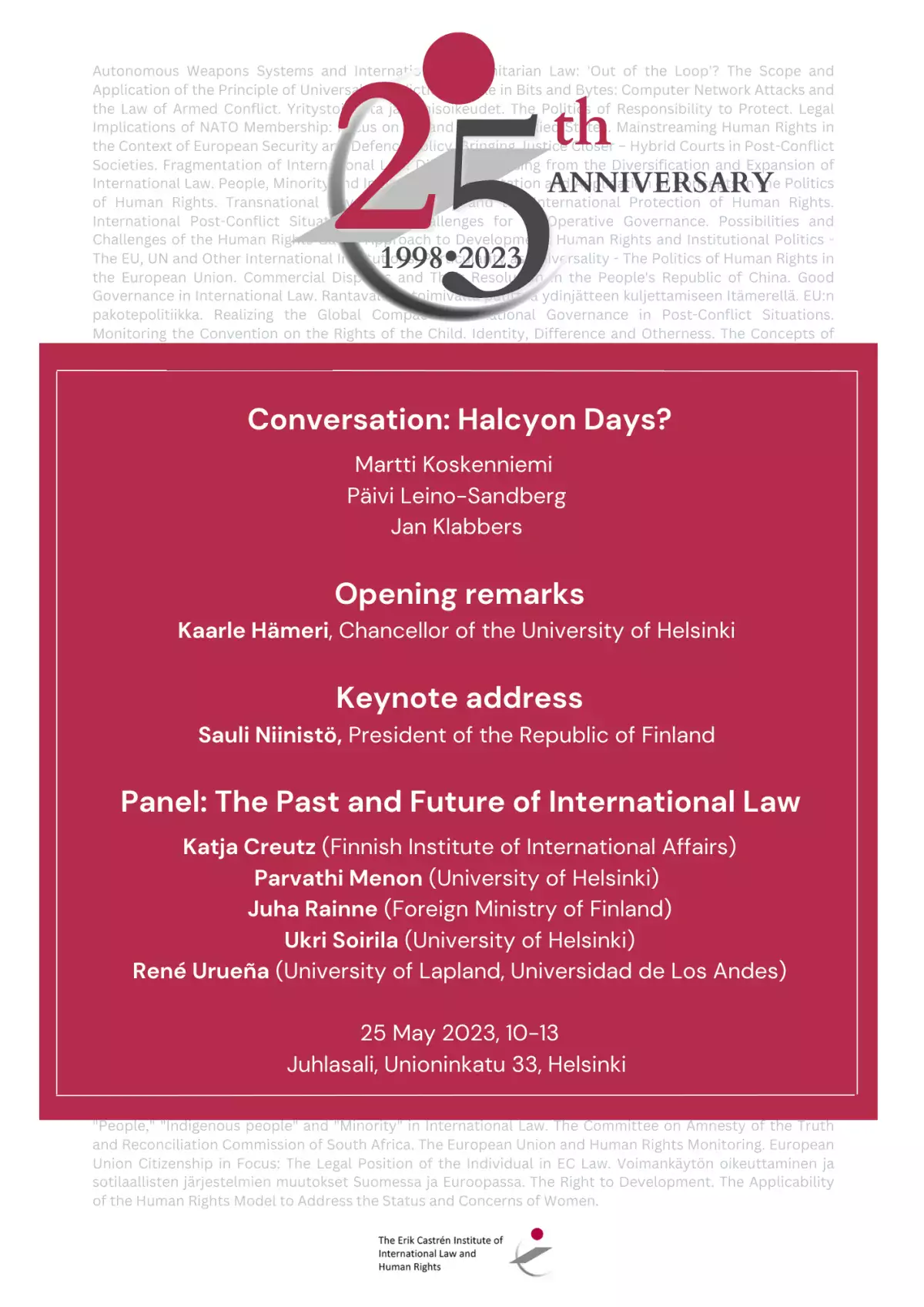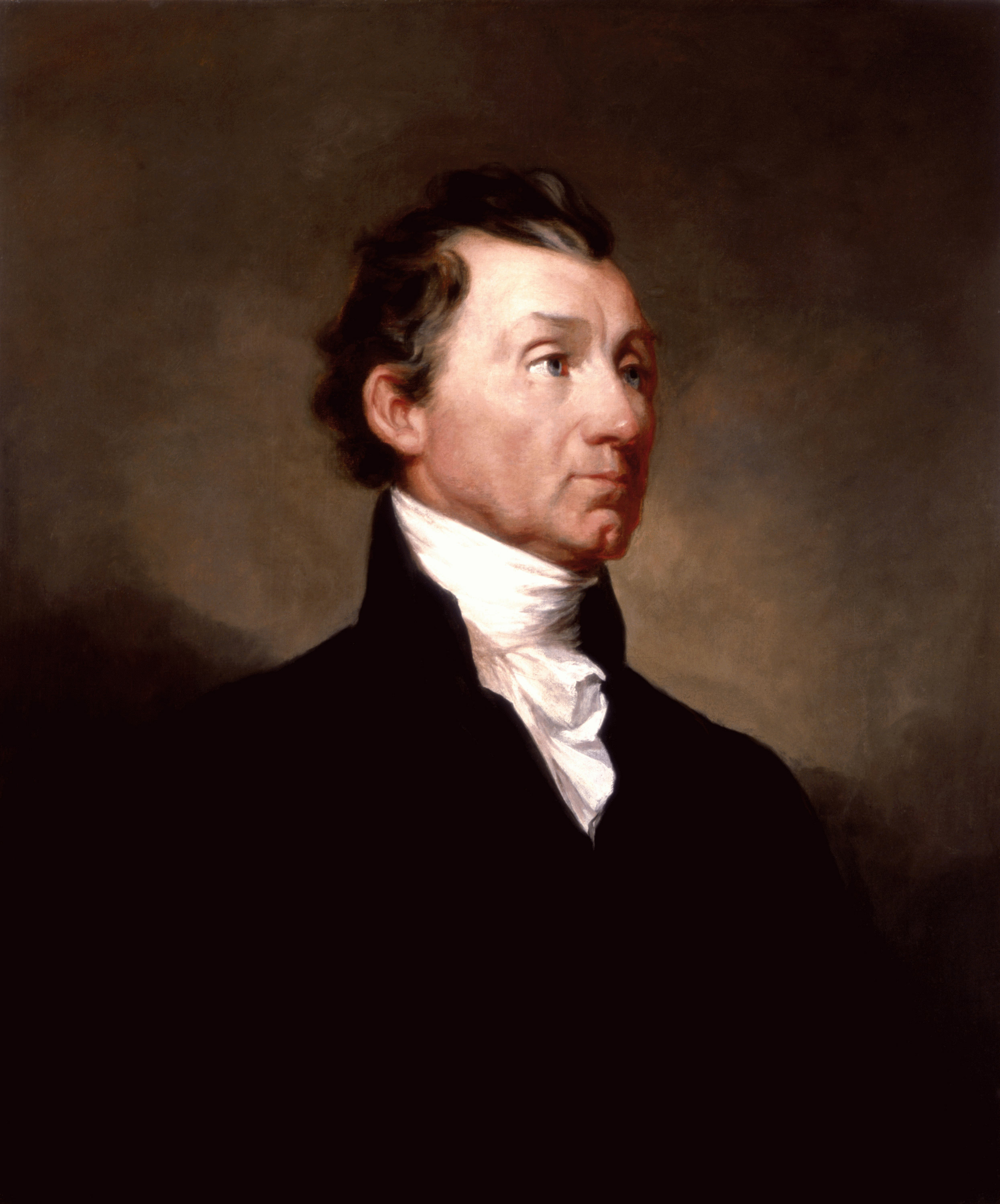Description:
Frankfurt-am-Main, 1 and 2 December 2023
Organized by Justus-Liebig Universität Giessen and the TRACE Research Center “Transformations of Political Violence”, an interdisciplinary research network of five Hessian research Institutions: The Peace Research Institute Frankfurt (PRIF), the Goethe University Frankfurt, the Justus Liebig University Giessen, the Philipps University Marburg and the Technical University of Darmstadt. Additional support provided by the Asser Institute for International and Development Studies, The Hague, and the Peace Research Institute, Frankfurt.
Call for Papers:
December 2nd, 2023, will mark the bicentenary of President James Monroe’s famous State of the Union to the U.S. Congress. Out of the 6500 words of his full address, two sentences are remembered as the Monroe Doctrine: « no future colonization by any European power » in the American continents and « not to interfere in the internal concerns » of any other countries.
Over twenty years after Monroe’s pronouncement, the doctrine was invoked by President James Polk in a 1845 speech to Congress, but this time he cited it to outline expansionist designs in Latin America.
Later on, the principle of non-interference marked the separation of the Americas from Europe and the rise of geographical spheres of political and economic influence. The Monroe Doctrine also reinforced the principle of non-intervention as opposed to the European Concert of Powers collectively authorizing armed intervention in Italy and Spain after the congresses of Ljubljana and Verona.
Monroe’s speech had great resonance upon political writers and jurists all over the world such as Friedrich Gentz who identified it as “a document which will make an epoch in the history of our time”. Indeed, the Monroe Doctrine would be re-discussed and re-interpreted at the turn of the century (1880-1910), especially within the Roosevelt Corollary of the doctrine which legitimized U.S. hemispheric interventions that were becoming ever more frequent in the 1910’s.
After WW I, the doctrine reached newfound prominence in Article 21 of the Covenant of the League of Nations, which stated that “Nothing in this Covenant shall be deemed to affect the validity of international engagements, such as treaties of arbitration or regional understandings like the Monroe doctrine, for securing the maintenance of peace”.
Within the debate between regionalism and universalism of international law, the principle of non-intervention became a legal norm (Art. 8 of the Montevideo Convention on the Rights and Duties of States; Arts. 2(1) and 2(7) of the UN Charter) and a tool of monitoring political violence.
As Juan Pablo Scarfi pointed out recently, “although the bicentenary of the Monroe Doctrine is approaching in 2023, we have not seen much significant scholarly discussion over its legacy in recent years”. Indeed, shortcomings remain in regard to academic research on the Monroe Doctrine. Especially in a transnational and multidisciplinary (economic, juridical, cultural, and political) perspective within the broader scope of the Monroe Doctrine which could be seen also as an institutional containment of violence.
In order to examine the legacy of the Monroe doctrine two hundred years after its pronouncement, this conference will address three main questions and sections:
1) The historical background of the Monroe Doctrine in transnational perspective.
Contributions can be made on the making of the doctrine, its interpretation and resonance in the U.S., Latin America, and Europe but also in other locales such as the Middle East, Asia and Africa. Paintings, novels and other cultural and material artefacts could also be analysed to reflect upon the impact of the doctrine in the 1820’s and onwards. Contributions by economists are very welcome to look more deeply at the economic repercussions of the doctrine.
2) The rearrangement and new interpretation of the Monroe Doctrine from the 1880’s to the 1940’s
This second section will be devoted to the legacy of the doctrine in the wake of its centenary and in the context of American interventionism and imperialism at the turn of the century. How was the Doctrine interpreted by international lawyers within the Institut de Droit International, the International Law Association and the various national international law societies founded at the end of the 19th century? Here again, even if the principal focus will be on Latin America, contributions on other geographies and spaces are most welcome.
3) The Contemporary Legacies of the Monroe Doctrine
Finally, the conference will evaluate how far the Monroe Doctrine has irrigated contemporary international law and its many subfields such as investment law, forms of trade protectionism and other aspects of diplomatic relations (e.g. the use of force). Indeed, the nineteenth century was an era of unprecedented internationalization of economic rights, which safeguarded property and investments accrued in the context of colonialism and imperialism. This part will examine the extent to which the ideological underpinnings of the Monroe Doctrine supported these unequal economic structures.
Propositions can be send in English (yet, French, German and Spanish can be also accepted) by email to raphael.cahen@recht.uni-giessen.de ; L.Castellanos@asser.nl ; simon@soz.uni-frankfurt.de
All applications must be sent by May 15th 2023 with an abstract of 250 words and a short CV. The proceedings will appear in a peer-reviewed publication. In principle, transportation should be covered by participants, but accepted panellists will be able to apply for travel grants subject to available funding.
Bibliography
Sources
-Seventh Annual Speech by James Monroe, 2 December 1823 https://millercenter.org/the-presidency/presidential-speeches/december-2-1823-seventh-annual-message-monroe-doctrine
-Friedrich Gentz, “Colonial Frage (1824)” in G. Kronenbitter (ed), Friedrich Gentz Gesammelte Schriften, Hildesheim, Olms-Weidmann, 2002, VIII/5, p. 102-112.
Selected Literature
Alvarez Alejandro, The Monroe Doctrine : Its Importance in the international life of the States of the New World, Oxford, OUP, 1924.
Becker Lorca Arnulf, Mestizo International Law, A Global Intellectual History 1842-1933, Cambridge, CUP, 2015.
Bemis Samuel Flagg, John Quincy Adams and the Foundations of American Foreign Policy, Alfred A. Knopf, 1949
Brock Lothar & Hendrik Simon, The Justification of war and international order. From Past to Present, OUP, 2021.
Bryne Alex, The Monroe Doctrine and United States National Security in the Early Twentieth Century, Springer Nature, 2020.
Cresson William P., The holy alliance. The European background of the Monroes doctrine, OUP, 1922
Eslava Luis, Liliana Obregon and René Uruena, “Imperialismo(s) y Derecho(s) Internacional(es): Ayer y Hoy’ in Antony Anghie, Martti Koskenniemi and Anne Orford (ed), Imperialismo y Derecho Internacional, Siglo del Hombre, 2006, p. 11-93.
Ghervas Stella, Conquering Peace : From the Enlightenment to the European Union, Cambridge, Harvard University Press, 2021.
Gretchen Murphy, Hemispheric imaginings. The Monroe Doctrine and narratives of U.S. empire, University Press, Durham, 2005.
May Ernest R., The Making of the Monroe Doctrine, HUP, 1992.
May Robert E., "The Irony of Confederate Diplomacy: Visions of Empire, the Monroe Doctrine, and the Quest for Nationhood.", Journal of Southern History, 83/1, 2017, 69-106.
Mariano Marco, L'America nell'"Occidente", Storia della dottrina Monroe (1823-1963), Carocci Editore 2013.
Meiertöns Heiko, Die Doktrinen U.S.-amerikanischer Sicherheitspolitik. Völkerrechtliche Bewertung und ihr Einfluss auf das Völkerrecht. Nomos, 2006
Merk Frederick, The Monroe Doctrine and American Expansionism, 1843–1849, Knopf, 1966.
Obregon, Liliana, “ Completing Civilization: Creole Consciousness and international Law in Nineteenth-Century Latin America”, in Anne Orford, International Law And its Others, CUP, 2006, p. 247-264
Perkins Dexter, The Monroe Doctrine, Gloucester, P. Smith, 1965-1966, 3. Vol.
Rossi Christopher, Whiggish International Law. Elihu Root, The Monroe Doctrine, and International Law in Americas, Brill, 2019
Scarfi Juan Pablo, “Camilo Barcia Trelles on the Meaning of the Monroe Doctrine and the Legacy of Vitoria in the Americas”, European Journal of International Law, 31/4, 2020, 1463–1475, https://doi.org/10.1093/ejil/chab003
Scarfi J. P., “Denaturalizing the Monroe Doctrine: The rise of Latin American legal anti-imperialism in the face of the modern US and hemispheric redefinition of the Monroe Doctrine”, Leiden Journal of International Law, 33/3, 2020, 541-555.
doi:10.1017/S092215652000031X
Sexton Jay, The Monroe Doctrine : empire and nation in nineteenth-century America, Hill and Wang, 2010
Sluga Glenda, The Invention of International Order: Remaking Europe after Napoleon, PUP, 2022.
Tatum Edward Howland, The United States and Europe, 1815-1823: A Study in the Background of the Monroe Doctrine, Russell & Russell, 1967.
Wilbur W. Allan, The Monroe doctrine, Heath, 1965.
Organising Committee
Raphaël Cahen (JLU Giessen)
León Castellanos-Jankiewicz (Asser Institute)
Hendrik Simon (Peace Research Institute Frankfurt)
Scientific Committee
Horst Carl (JLU Giessen)
Thilo Marauhn (JLU Giessen)
Yves Bruley (Ecole Pratique des Hautes Etudes)
Frederik Dhondt (Vrije Universiteit Brussel)
Stella Ghervas (Newcastle University)
Martti Koskenniemi (University of Helsinki)
Ntina Tzouvala (Australian National University)
Miloš Vec (University of Vienna)
Source: ESCLH blog





